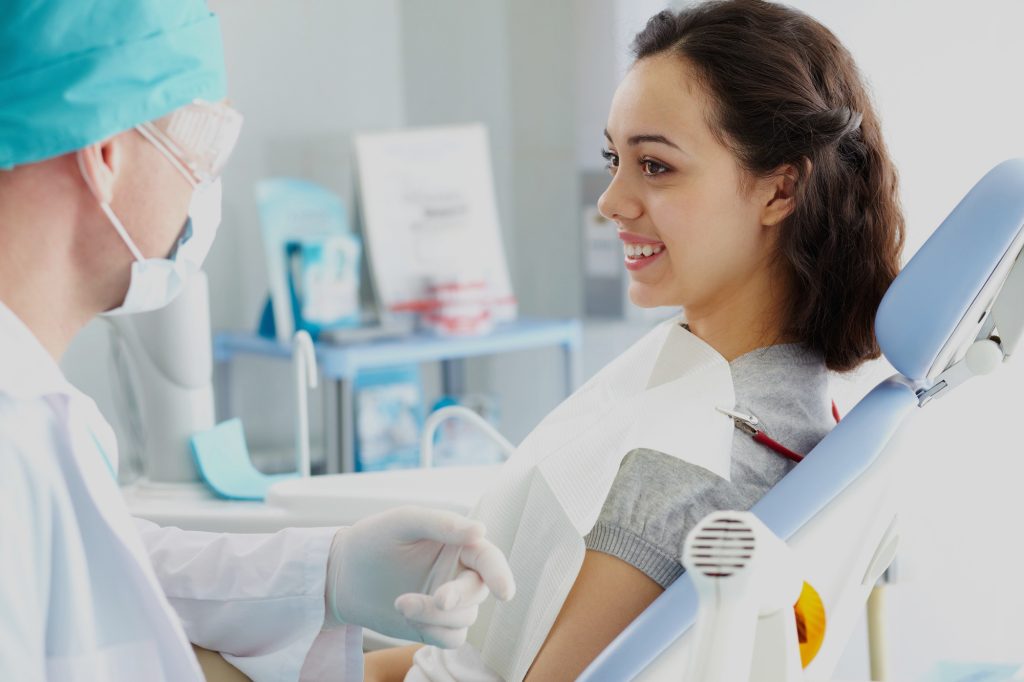Preventive Care
Preventive care is the cornerstone of dental health, focusing on maintaining strong teeth and gums while preventing potential issues from escalating into more serious problems. For individuals undergoing orthodontic treatments like Invisalign and braces, preventive care becomes even more critical, as it ensures the treatment progresses smoothly and effectively. By addressing oral health proactively, preventive care not only supports optimal dental health but also enhances the outcomes of orthodontic procedures.
Orthodontic treatments introduce unique challenges to oral hygiene, such as the difficulty of cleaning around brackets or aligners. Preventive care bridges this gap by providing specialized interventions and education to maintain a clean and healthy oral environment. Whether you're correcting alignment issues or enhancing your smile, preventive care is the foundation for a successful treatment journey.

Key Components of Preventive Care:
Regular Cleanings
Professional dental cleanings are essential for removing plaque and tartar buildup that regular brushing and flossing often miss. These deposits can accumulate around brackets, wires, or aligners, increasing the risk of cavities and gum disease. Regular cleanings help maintain a healthy oral environment, preventing issues that could disrupt or delay orthodontic progress.Routine Exams
Routine dental exams allow for the early detection and management of potential oral health concerns. Your dentist or orthodontist will examine your teeth, gums, and overall oral health, identifying issues such as decay, gum inflammation, or misalignments that may interfere with braces or aligners. Early intervention helps maintain the efficiency and effectiveness of orthodontic treatment.Fluoride Treatments
Fluoride is a vital mineral for fortifying tooth enamel, making it more resistant to decay and erosion. For individuals with braces or aligners, professional fluoride treatments are particularly beneficial, as they provide additional protection for areas that may be harder to clean thoroughly. Fluoride treatments act as a safeguard, ensuring your teeth remain strong throughout your orthodontic journey.Patient Education
Knowledge is a powerful tool in preventive care. Dentists and orthodontists provide personalized guidance on maintaining optimal oral hygiene while undergoing orthodontic treatments. This includes:- Demonstrating effective brushing and flossing techniques, especially around braces or aligners.
- Introducing tools like interdental brushes or water flossers to enhance cleaning.
- Advising on dietary choices to prevent damage to braces or staining of aligners.
- Offering tips on managing discomfort and protecting oral appliances during sports or other activities.
By empowering patients with the right knowledge and tools, preventive care minimizes complications and supports the long-term success of orthodontic treatments.
The Role of Preventive Care During Orthodontic Treatment
Orthodontic treatments involve gradual adjustments to your teeth and jaw, creating opportunities for plaque buildup in hard-to-reach areas. Preventive care ensures these challenges are addressed through tailored approaches that maintain oral health and enhance the overall treatment experience. By prioritizing regular cleanings, routine exams, fluoride treatments, and patient education, you can protect your smile and enjoy a seamless orthodontic journey.
Preventive care isn’t just a supplement to orthodontic treatment—it’s an essential component that safeguards your investment in a healthier, more confident smile.